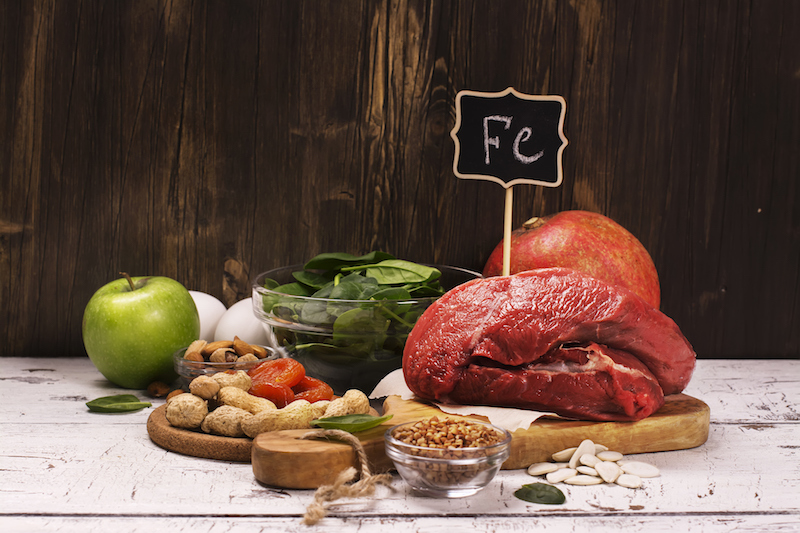Anaemia is a condition in which your blood has fewer red blood cells than normal. It can also follow if your red blood cells don’t have enough haemoglobin (an iron-rich protein that gives blood its red colour). Haemoglobin helps red blood cells carry oxygen from the lungs to the rest of the body. Having anaemia may cause you to feel tired, weak, and short of breath.
Anaemia affects people of all ages and ethnic groups. Both men and women can develop the condition, but women of childbearing age are most at risk due to blood loss from menstruation. Anaemia can also develop during pregnancy. If your diet lacks iron, folic acid (folate) or Vitamin B12, you could be at risk for the condition. Iron deficiency is the most common cause of anaemia.
Anaemia is a serious public health problem. In fact, it’s one of the most common nutritional deficiencies in the world. But it’s also one of the most treatable and preventable. A healthy diet is your first line of defence.
Plan your diet
- Eat more iron-rich foods. Excellent sources of easily-absorbed iron are organ meats like liver and kidney. Fish, eggs (especially the yolk), cheese, spinach, beans, lentils, and fortified breakfast cereals are also good iron providers.
- Vitamin C improves iron absorption. Sip a glass of fresh orange juice with your egg or fortified cereal breakfast. Not a fan of OJ? Try apple, mango or pineapple juice instead.
- Consider an iron supplement if you have iron-deficiency anaemia. These supplements can rebuild your body’s supply of iron within four to six months. First check the appropriate dosages with your doctor or pharmacist. You need to take a dose high enough for the supplement to be effective. Excessive doses can have potentially serious side-effects.
- Folic acid is mainly found in green leafy vegetables. Asparagus, broccoli, citrus fruits, beans, peas, and lentils are great sources of folate. Supplementing folate is also recommended for pregnant women.
- Vitamin B12 is found in meat, eggs and dairy products. If you have a Vitamin B12 deficiency, consider a supplement. These are usually given first by injection, followed by tablets until the condition is controlled.
- Avoid overcooking food as this can destroy nutrients. Steam or broil your food rather than frying.
Take it in
Make sure your body uses the iron in your diet effectively:
- Avoid drinking tea or wine within one hour of taking iron supplements. The tannins in these drinks can bind iron, making it difficult to absorb. Phosphate in fizzy drinks can have the same effect.
- Leave an hour between eating foods that contain iron and drinking milk. One glass of milk (about 165mg calcium) can reduce iron absorption by more than half. The same applies to high-calcium dairy foods and calcium supplements.
- Phytates (a form of phosphorous in plants that humans can’t absorb), for example in raw cereal, can also make iron absorption difficult. Leave a one-hour gap between your morning cereal and taking your iron supplements.
- Some drugs may prevent iron absorption, and iron can obstruct absorption of some other drugs. Talk to your doctor about any medication you are taking.

